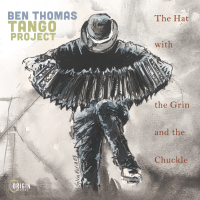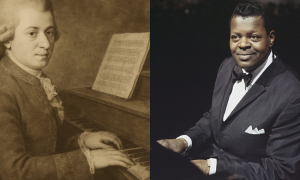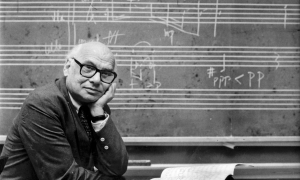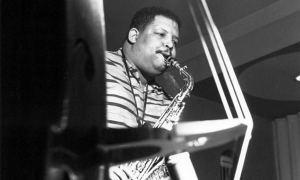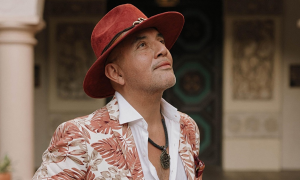Home » Jazz Articles » Opinion » Jazz Riffs Amidst the Rubble: How Ukraine's Artists Keep...
Jazz Riffs Amidst the Rubble: How Ukraine's Artists Keep Jazz Alive in Wartime

The story of jazz in Ukraine is long and winding, stretching back to the Soviet era. In the 1920s and '30s, jazz seeped into the Soviet Union, brought by records, radio broadcasts, and visiting musicians. Despite the ideological disapproval of the Communist Party, which viewed jazz as decadent Western music, it found a dedicated audience, particularly among intellectuals and artists. Ukraine, as part of the Soviet Union, became one of the centers where jazz began to flourish.
In the late 1950s and early 1960s, jazz experienced a period of relative freedom, allowing Ukrainian musicians to develop distinctive styles that blended traditional jazz harmonies with Ukrainian folk melodies. However, this newfound freedom was short-lived as the Soviet Union grew more repressive, and jazz came under scrutiny once again.
Despite these challenges, jazz never entirely disappeared; underground scenes thrived. After the collapse of the Soviet Union in 1991, jazz experienced a renaissance in Ukraine. New clubs opened, international festivals were established, and Ukrainian jazz began to gain recognition on the global stage; however, the ongoing war has cast a long shadow over this thriving musical community.
When Russia launched its full-scale invasion in February 2022, the war drastically altered the lives of Ukrainian jazz artists. Concert halls became refugee centers, clubs were destroyed, festivals cancelled, and artists faced impossible choices: stay and fight, or flee to safety. Many chose to stay, finding ways to support the war effort through Jazz. Some artists joined the military, trading their instruments for rifles, and even lost their lives; others volunteered to perform for soldiers on the front lines, and others organized benefit concerts.
For those who have fled Ukraine, jazz has become more than just a form of entertainment; it has become a source of solace, a means to raise awareness about the war, and a way to promote support for their fellow artists back home. Despite the immense challenges they face, Ukrainian jazz artists remain resolute in their determination to keep their music alive.
To support Ukrainian jazz musicians, consider donating to organizations such as Musicians Defend Ukraine or the Lisa Batiashvili Foundation, which provide direct financial aid to displaced musicians, you can also support Chetham's School of Music, which supports displaced music students, or the Open Music Project, which helps both displaced and remaining Ukrainian musicians.
Tags
Comments
PREVIOUS / NEXT
Support All About Jazz
 All About Jazz has been a pillar of jazz since 1995, championing it as an art form and, more importantly, supporting the musicians who make it. Our enduring commitment has made "AAJ" one of the most culturally important websites of its kind, read by hundreds of thousands of fans, musicians and industry figures every month.
All About Jazz has been a pillar of jazz since 1995, championing it as an art form and, more importantly, supporting the musicians who make it. Our enduring commitment has made "AAJ" one of the most culturally important websites of its kind, read by hundreds of thousands of fans, musicians and industry figures every month.



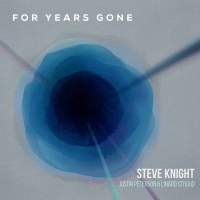

 Buy Now
Buy Now




